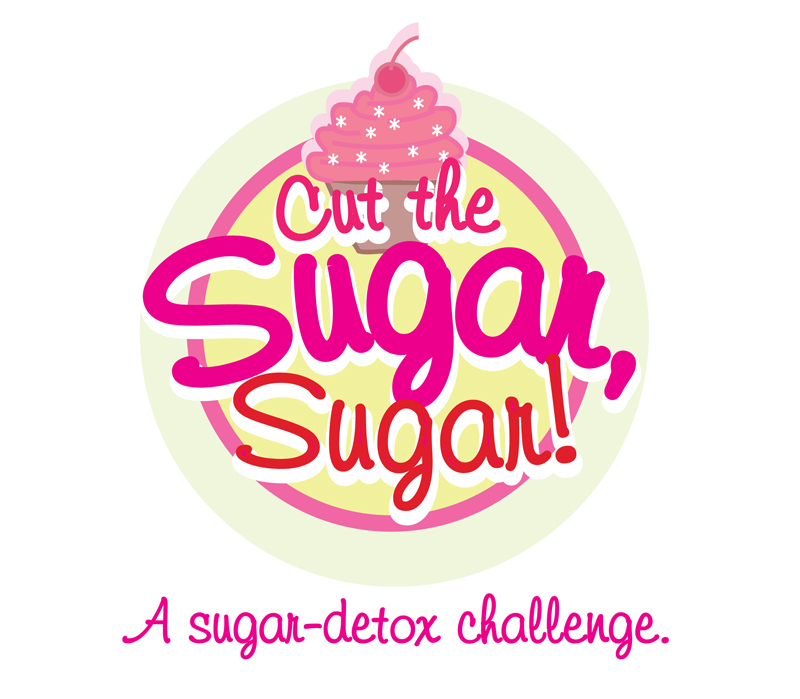
…. because you’re sweet enough!
(welcome to my 3 day // 3 week // or 3 month ‘cut the sugar’ challenge!)

Well hello my sweet sweet friends! You can’t argue here, because I know very well – you’re sweet enough!
Did you know that SUGAR is the number one addiction in North America? We often think of addictions as some kind of uncontrolled high from drugs or other stimulants. Well, sugar is just that. It’s a legal drug!
Sugar affects opioids and dopamine in the brain, and thus might be expected to have addictive potential. “Bingeing,” “withdrawal,” “craving” and “cross-sensitization” are each given operational definitions and demonstrated behaviourally with sugar bingeing as the reinforcer. These behaviours are then related to neurochemical changes in the brain that also occur with addictive drugs. Of course, the sugar industry claims that similar effects have been reported for rats given solutions that tasted sweet, but contained no calories. However, caloric value may not be the issue. Sugar and the taste of sweet stimulate the brain by activating beta endorphin receptor sites. These are the same chemicals activated by heroin and morphine. Crazy! Am I right? And meanwhile, you’re already twitching from a craving of your sugary drug!
Current Sugar Guidelines
Here are some crazy facts about just exactly how much sugar we are consuming on average. On average, Canadians and Americans consume approximately 110 grams of sugar a day, the equivalent of 26 teaspoons. Recently, the American Heart Association published recommended limits for intake of added sugars as a means to help reduce risk for heart disease. The current recommended limits for added sugars are:
100 calories for women (25 grams or 6 teaspoons)
150 calories for men (38 grams or 9 teaspoons)
A single can of coke has approximately 10 teaspoons of sugar – that certainly puts you way over the whole day’s dose, and that’s just with one beverage.
Added vs. Natural Sugar?
The guidelines specifically refer to added sugars: table sugar, honey, natural syrups (e.g. agave, maple, and molasses), commercial syrups (e.g. high fructose corn syrup), and concentrated fruit sugars added to foods to sweeten or preserve. The naturally occurring sugars in milk, fresh fruit, dried and frozen fruit without added sugar and 100% fruit juice are not considered added sugars. Artificial sweeteners and sugar alcohols are also not considered added sugars.
But there is a catch, research shows that artificial sweeteners are dangerous to your health!
Sugar grams listed on the Nutrition Facts panels of most food products include both naturally occurring sugars and added sugars. This might change in the future with a new labelling law, but for now, you have to look at the ingredient list to find added sugars. And they don’t even have a daily value figured out. So if you’re used to going by the daily value – you won’t find anything there on sugar – where you should look is the total grams and keep in mind that only 25 grams of sugar is within healthy limits.
Names for added sugars are numerous. (click below the break to read a whole list of sugar in other forms).
It is easy to identify regular soda pop and energy drinks as examples of empty calories, but what about sugary foods and drinks that also have nutrients? Choose brands that have less added sugar than their rivals. Or, select unsweetened versions. See the list below for nutritious foods that often have too much added sugar.
And if you think a 5 banana smoothie is a great breakfast – think of the total amount of sugar there! That’s 75 grams of sugar in one mason jar! Simply put, that’s too much sugar for one sitting!
“Natural Sugars” include:
- milk (lactose)
- fruit (fructose, sucrose)
- vegetables
- carbohydrates such as pasta, bread
.
“Added (free) Sugars” include:
The healthiest options:
- Fruit and natural fruit juices
- Honey – (non-vegan) Unlike white table sugar, honey is a complex food. One teaspoon contains 25 other compounds including proteins, amino acids and trace minerals.
- Agave – A distilled sweetener derived from the blue agave cactus, agave has a low glycemic index. Agave is getting a bad reputation out there that it is high in fructose – guess what? Honey has more fructose than Agave. And an apple falls right behind it.
- Stevia – A low-calorie sweetener that comes from a plant native to Paraguay and Brazil, stevia is 200 times sweeter than table sugar, so a little goes a long way.
- Maple Syrup
- Molasses
- Brown Rice Syrup
.
Eliminate Hidden and Artificial Sugars
When purging your kitchen, be on the look out for these names:
- table sugar(refined, processed sugars from cane, beet – sucrose – added to foods by the manufacturer, cook or consumer)
- corn sugar (glucose)
- corn syrup
- high-fructose corn syrup commonly added to fruit juices
- maltose
- sorbitol
- xylitol
.
The worst lil’ white devils! These descriptions are taken from Dr Oz’s website – I’m thinking that he doesn’t want any lawsuits from Splenda or the other brands so he mentions a few good points and he’s done with it! Wrong! In my research Sucralose, Aspertame and Saccharin are very dangerous chemicals. If you want to get healthier – do yourself a favour and never consume these and never allow your family especially kids to have these.
- Sucralose (includes Splenda brand) – What it claims: It is 500 times sweeter than sucrose, stored in body fats, and does not affect blood sugar levels. It’s use is too new to know the long-term effects, but it appears the most promising and is the best one for cooking. Note : Do not consume. Enough research is out there to prove it is not safe.
- Aspartame (includes Equal, Nutrasweet brands) – Several studies have found it has adverse health effects. This sweetener stays in your body longest, and it cannot be heated – or it turns into formaldehyde. Note : Do not consume. Enough research is out there to prove it is not safe.
- Saccharin (includes Sweet’N Low brand) – Long-term data suggest it may be one of the safest sweeteners. Note : Do not consume. Enough research is out there to prove it is not safe.
.
Let’s not sugar-coat things. Know your risks:
1. High Blood Pressure – Normal nitric oxide levels keep blood vessels healthy and open. Too much sugar in your diet decreases nitric oxide levels, causing blood vessels to become narrow, which causes high blood pressure and an increased risk for cardiac disease.
2. High Cholesterol – People who consume too much sugar are more likely to have lower levels of HDL, or good cholesterol, higher levels of LDL, or bad cholesterol, and higher levels of triglycerides, or blood fats. This clogs up arteries and blood vessels, leading to heart disease.
3. Liver Disease – A diet high in sugar is believed to exacerbate fatty liver disease. Too much sugar spikes insulin and drives fat into the liver cells, which causes inflammation and scarring, eventually causing the liver to become cirrhotic.
4. Insulin Resistance – When sugar enters the body, insulin opens the door to allow sugar into the cells. However, when there are continuous sugar spikes, insulin becomes less effective. Sugar can’t get into the cells and become “stuck” in the body, producing toxic effects that lead to obesity and the threat of diabetes.
…….
I turned my health around from a devastating disease, as I have frequently mentioned here on this blog. Many people now ask me how can I help them start getting healthier themselves. Cutting the sugar is the honest answer as to how I started getting healthier. You can get your health back too.
And even though you’re not sick, that doesn’t always mean that you’re healthy.
Try this. From my nurturing heart to you – this is my gift. No fees, no strings attached. All I need is a bit of your dedication and will power.
Essentially, I would like this to be a lesson for both me and you to make good decisions when it comes to sugar intake. There are lots of confusing choices out there. But first, the best thing you can do for your body is to go on a sugar-detox. Hence the need for the 3 month challenge. (or however long you can do it for)
The 3 day sugar-detox is for you if:
you think you’re eating healthy, but you have the occasional sugar rush and have a slip. 3 days completely sugar-free will give you enough of a detox to feel better and healthier again and take control over your cravings.
The 3 week sugar-detox is for you if:
you know you have a problem and it’s time to do something about it. If you can’t go a full day without some form of sugar, than you should take this challenge. A sugar-detox will increase energy, improve mental clarity, reduce moodiness, improve the digestive tract. All great reasons to ditch sugar, heal the gut and reset your body and taste buds.
The 3 month sugar-detox is for you if:
you have health problems and are looking for a way to heal and improve your health. Because of my health problems, as you know, I know I need to stick through the full 3 months sugar-free. This will be hard, but sugar feeds disease… In fact, even cancer cells feed on sugar. Candida is fed by sugar. You can make great health changes to your body and even heal from many health problems with cutting out sugar!
My sugar-detox challenge, will help you overcome your cravings and make you feel healthier and happier. You will feel more energized and in control of your body and mind. Your body will heal from any possible health issues you may have and help you prevent many health problems later.
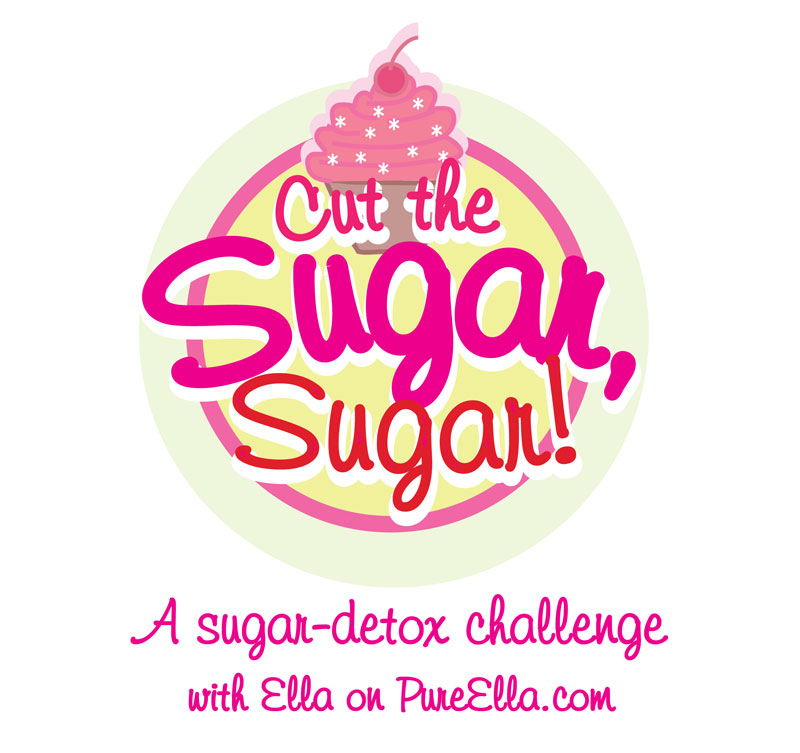
Here are the 8 Steps to follow your Sugar-Detox. It’s not complicated at all, you can do this and your body will thank you for it with more vitality, energy and even appearance in your skin! (just before summer! Yeah)
1. PURGE Purge all your kitchen sugar items, either discard or put in a bin and let someone else more responsible in your household to hide it from sight.
2. NO CHEATING! No cheating! Look at that bowl of cereal closely too, how much sugar is in it anyway? Judge honestly – don’t cheat. Look for completely sugar-free alternatives like oatmeal. That also means no baking your favourite cookies and having home-made desserts. (ok, you can cheat here, once a week or on a special occasion – once a week is ok if you do the full 3 month challenge. But choose recipes that are naturally sweetened with fruit or good-for-you sweeteners like a minimal amount of honey (a great recipe is the Two-Ingredient Cookies to try!)
3. SELF-CONTROL When shopping for new items, look out for the hidden and artificial sweeteners and just make a conscious decision to NOT purchase any sugary products – other than Fruit!
4. FOCUS You will crave, get moody, kick and scream when you remember your ‘fix’. Do not think about what you’re giving up, instead, think of all the good things you’re adding to your body. Removing unhealthy sugary products, leaves room for more veggies and more healthy foods.
5. BE PREPARED Do prepare yourself some healthy snacks when the cravings do come in. Have a healthy stash of snacks that you can have in between meals like almonds, nuts and seeds. A spoonful of unsweetened almond butter in between meals.
6. FRUIT RULES! Fresh fruit is acceptable, but only one whole fruit per day. And make sure you have fresh fruit on an empty stomach in between meals, and just a single serving at a time (that is usually a handful). Do not have any fresh fruit close to bedtime – and never bananas.
7. TRICK YOUR TASTE BUDS Add cinnamon, ginger, nutmeg, vanilla or allspice to your tea or coffee, cereals and baked goods – this will help to fool your taste buds and help you control your cravings.
8. HYDRATE Beverages – drink water! In fact, make it a point to drink filtered water more frequently. Try switching up the variety and have a mineral water like Perrier. Add some fresh lemon slices or fresh fruit and it tastes so much more refreshing and delicious. Coconut water is another great option.
Taking this sugar-detox plunge will leave room for healthier alternatives – have more salads and veggies. Fresh organic baby carrots and other conveniently cut up veggie sticks can be left in a bowl on the kitchen counter for everyone to grab on the go or can be packed up for work or school. Make conscious decisions to replace all that sugar with better choices!
Make this a lifestyle change not just a challenge. Make the decisions daily to Cut the Sugar, sugar! Remember, you’re sweet enough!
I encourage everyone to think about this challenge and to join in for however long you can. If you can do the 3 full months. Great. To lessen the challenge, try 3 weeks – or even 3 days just to test your own will power. You will still reap with health benefits and your body and mind will thank you for it.
You choose: 3 months. 3 weeks. 3 days
Good Luck my friends. I will be here for support and to answer any questions you might have.
Ps. I’m also doing this challenge so I will be following my own rules ;) This will be fun!
*sending big supportive hugs*
YOU’RE SWEET ENOUGH!
Do you have intense cravings that could almost be described as addictive? How do you handle sugar cravings? What’s in your sugary ‘stash’ right now?
One way to find out if you have a very intense uncontrolled sweet tooth, is to take a challenge like this even for just a few days and see how you handle it. If you do see yourself craving sugar uncontrollably – that’s even a bigger reason for you to go on the Sugar-Detox challenge.
…….
Still not convinced why you should cut down on sugar? read more…..
Here is the alphabet of sugar in disguise:
- Agave nectar
- Barley malt
- Beet sugar
- Brown sugar
- Buttered syrup
- Cane juice crystals
- Cane sugar
- Caramel
- Corn syrup
- Corn syrup solids
- Confectioner’s sugar
- Carob syrup
- Castor sugar
- Date sugar
- Demerara sugar
- Dextran
- Dextrose
- Diastatic malt
- Diatase
- Ethyl maltol
- Fructose
- Fruit juice
- Fruit juice concentrate
- Galactose
- Glucose
- Glucose solids
- Golden sugar
- Golden syrup
- Grape sugar
- High-fructose corn syrup
- Honey
- Icing sugar
- Invert sugar
- Lactose
- Maltodextrin
- Maltose
- Malt syrup
- Maple syrup
- Molasses
- Muscovado sugar
- Panocha
- Raw sugar
- Refiner’s syrup
- Rice syrup
- Sorbitol
- Sorghum syrup
- Sucrose
- Sugar
- Treacle
- Turbinado sugar
- Yellow sugar
Here is a list of health problems that are linked to sugar intake:
1 Sugar can suppress the immune system.
Compare Using Your Amuse System to Boost Your Immune System.
2 Sugar upsets the mineral relationships in the body.
Compare Minerals.
3 Sugar can cause hyperactivity, anxiety, difficulty concentrating, and crankiness in children.
4 Sugar can produce a significant rise in triglycerides.
5 Sugar contributes to the reduction in defense against bacterial infection (infectious diseases).
6 Sugar causes a loss of tissue elasticity and function, the more sugar you eat, the more elasticity and function you lose.
7 Sugar reduces high density lipoproteins.
8 Sugar leads to chromium deficiency.
9 Sugar leads to cancer of the breast, ovaries, prostate, and rectum.
[This statement may need to be qualified and reworded in less absolute terms, also see number 120, 126 & 143.]
10 Sugar can increase fasting levels of glucose.
11 Sugar causes copper deficiency.
12 Sugar interferes with absorption of calcium and magnesium.
Compare book extract.
In addition, sugar needs calcium to be metabolized and reportedly draws the required amounts from teeth and bones if these are not provided via food containingbioavailable calcium.
13 Sugar can weaken eyesight.
14 Sugar raises the level of a neurotransmitters: dopamine, serotonin, and norepinephrine.
15 Sugar can cause hypoglycemia.
16 Sugar can produce an acidic digestive tract.
17 Sugar can cause a rapid rise of adrenaline levels in children.
18 Sugar malabsorption is frequent in patients with functional bowel disease.
19 Sugar can cause premature aging.
20 Sugar can lead to alcoholism.
21 Sugar can cause tooth decay.
22 Sugar contributes to obesity.
23 High intake of sugar increases the risk of Crohn’s disease, and ulcerative colitis.
24 Sugar can cause changes frequently found in person with gastric or duodenal ulcers.
25 Sugar can cause arthritis.
26 Sugar can cause asthma.
27 Sugar greatly assists the uncontrolled growth of Candida Albicans (yeast infections).
Compare note on Candida Albicans in Fungi producing mycotoxins: The Fungal/Mycotoxin Etiology of Human Disease (particularly CANCER).
28 Sugar can cause gallstones.
29 Sugar can cause heart disease.
30 Sugar can cause appendicitis.
31 Sugar can cause multiple sclerosis.
32 Sugar can cause hemorrhoids.
33 Sugar can cause varicose veins.
34 Sugar can elevate glucose and insulin responses in oral contraceptive users.
35 Sugar can lead to periodontal disease.
36 Sugar can contribute to osteoporosis.
37 Sugar contributes to saliva acidity.
38 Sugar can cause a decrease in insulin sensitivity.
39 Sugar can lower the amount of Vitamin E in the blood.
40 Sugar can decrease growth hormone.
41 Sugar can increase cholesterol.
42 Sugar can increase the systolic blood pressure.
43 Sugar can cause drowsiness and decreased activity in children.
44 High sugar intake increases advanced glycation end products (AGEs) (sugar bound non-enzymatically to protein).
45 Sugar can interfere with the absorption of protein.
46 Sugar causes food allergies.
47 Sugar can contribute to diabetes.
48 Sugar can cause toxemia during pregnancy.
49 Sugar can contribute to eczema in children.
50 Sugar can cause cardiovascular disease.
51 Sugar can impair the structure of DNA.
52 Sugar can change the structure of protein.
53 Sugar can make our skin age by changing the structure of collagen.
54 Sugar can cause cataracts.
55 Sugar can cause emphysema.
56 Sugar can cause atherosclerosis.
57 Sugar can promote an elevation of low density lipoproteins (LDL).
58 High sugar intake can impair the physiological homeostasis of many systems in the body.
59 Sugar lowers the enzymes’ ability to function.
60 Sugar intake is higher in people with Parkinson’s disease.
61 Sugar can cause a permanent altering [of] the way the proteins act in the body.
62 Sugar can increase the size of the liver by making the liver cells divide.
63 Sugar can increase the amount of liver fat.
64 Sugar can increase kidney size and produce pathological changes in the kidney.
65 Sugar can damage the pancreas.
66 Sugar can increase the body’s fluid retention.
67 Sugar is enemy #1 of the bowel movement.
68 Sugar can cause myopia (nearsightedness).
69 Sugar can compromise the lining of the capillaries.
70 Sugar can make the tendons more brittle.
71 Sugar can cause headaches, including migraine.
72 Sugar plays a role in pancreatic cancer in women.
73 Sugar can adversely affect school children’s grades and cause learning disorders.
74 Sugar can cause an increase in delta, alpha, and theta brain waves.
75 Sugar can cause depression.
76 Sugar increases the risk of gastric cancer.
77 Sugar [can] cause dyspepsia (indigestion).
78 Sugar can increase your risk of getting gout.
79 Sugar can increase the levels of glucose in an oral glucose tolerance test over the ingestion of complex carbohydrates.
80 Sugar can increase the insulin responses in humans consuming high-sugar diets compared to low sugar diets.
81 High refined sugar diet reduces learning capacity.
82 Sugar can cause less effective functioning of two blood proteins, albumin, and lipoproteins, which may reduce the body’s ability to handle fat and cholesterol.
83 Sugar can contribute to Alzheimer’s disease.
84 Sugar can cause platelet adhesiveness.
85 Sugar can cause hormonal imbalance; some hormones become underactive and others become overactive.
86 Sugar can lead to the formation of kidney stones.
87 Sugar can lead to the hypothalamus becom[ing] highly sensitive to a large variety of stimuli.
88 Sugar can lead to dizziness.
89 Diets high in sugar can cause free radicals and oxidative stress.
90 High sucrose diets of subjects with peripheral vascular disease significantly increases platelet adhesion.
91 High sugar diet can lead to biliary tract cancer.
92 Sugar feeds cancer.
Compare Sugar and Cancer.
93. High sugar consumption of pregnant adolescents is associated with a twofold increased risk for delivering a small-for-gestational-age (SGA) infant.
94. High sugar consumption can lead to substantial decrease in gestation duration among adolescents.
95. Sugar slows food’s travel time through the gastrointestinal tract.
96. Sugar increases the concentration of bile acids in stools and bacterial enzymes in the colon. This can modify bile to produce cancer-causing compounds and colon cancer.
97. Sugar increases estradiol (the most potent form of naturally occurring estrogen) in men.
98. Sugar combines and destroys phosphatase, an enzyme, which makes the process of digestion more difficult.
99. Sugar can be a risk factor of gallbladder cancer.
100. Sugar is an addictive substance.
101. Sugar can be intoxicating, similar to alcohol.
102. Sugar can exacerbate PMS.
103. Sugar given to premature babies can affect the amount of carbon dioxide they produce.
104. Decrease in sugar intake can increase emotional stability.
105. The body changes sugar into 2 to 5 times more fat in the bloodstream than it does starch.
106. The rapid absorption of sugar promotes excessive food intake in obese subjects.
107. Sugar can worsen the symptoms of children with attention deficit hyperactivity disorder (ADHD).
108. Sugar adversely affects urinary electrolyte composition.
109. Sugar can slow down the ability of the adrenal glands to function.
110. Sugar has the potential of inducing abnormal metabolic processes in a normal healthy individual and to promote chronic degenerative diseases.
111. IVs (intravenous feedings) of sugar water can cut off oxygen to the brain.
112. High sucrose intake could be an important risk factor in lung cancer.
113. Sugar increases the risk of polio.
114. High sugar intake can cause epileptic seizures.
115. Sugar causes high blood pressure in obese people.
116. In Intensive Care Units, limiting sugar saves lives.
117. Sugar may induce cell death.
118. Sugar can increase the amount of food that you eat.
119. In juvenile rehabilitation camps, when children were put on a low sugar diet, there was a 44% drop in antisocial behavior.
120. Sugar can lead to prostate cancer.
121. Sugar dehydrates newborns.
122. Sugar increases the estradiol in young men.
123. Sugar can cause low-birth-weight babies.
124. Greater consumption of refined sugar is associated with a worse outcome of schizophrenia.
125. Sugar can raise homocysteine levels in the blood stream.
126. Sweet food items increase the risk of breast cancer.
127. Sugar is a risk factor in cancer of the small intestine.
128. Sugar may cause laryngeal cancer.
129. Sugar induces salt and water retention.
130. Sugar may contribute to mild memory loss.
131. As sugar increases in the diet of 10-years-olds, there is a linear decrease in the intake of many essential nutrients.
132. Sugar can increase the total amount of food consumed.
133. Exposing a newborn to sugar results in a heightened preference for sucrose relative to water at 6 months and 2 years of age.
134. Sugar causes constipation.
135. Sugar causes varicose veins.
136. Sugar can cause brain decay in prediabetic and diabetic women.
137. Sugar can increase the risk of stomach cancer.
138. Sugar can cause metabolic syndrome.
139. Sugar ingestion by pregnant women increases neural tube defects in embryos.
140. Sugar can be a factor in asthma.
141. The higher the sugar consumption the more chances of getting irritable bowel syndrome.
142. Sugar could affect central reward systems.
143. Sugar can cause cancer of the rectum.
144. Sugar can cause endometrial cancer.
145. Sugar can cause renal (kidney) cell carcinoma.
146. Sugar can cause liver tumors.
source: 146 Reasons Why Sugar Is Ruining Your Health
source: wikipedia, statcan, Dr. Oz, (statistics from Canada 2004, but very similar in the US)

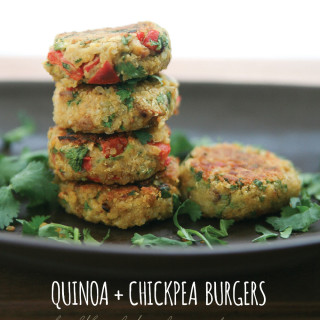
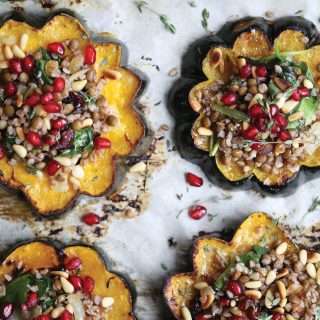
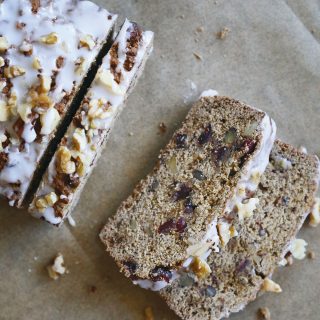


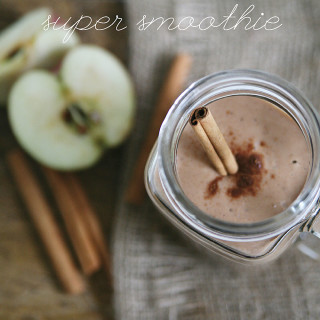
Holy moly, is this ever comprehensive. You are a rock star!!!!
Oh my ;) Not feeling like a rock star at all here LOL ;) but thank you!
I think that it’s only when we consciously stop to eat sugar that we realize how much we really consume. And, apparently it’s not so easy ;D
– yet it’s the best thing we can do for ourselves ~ maybe now that the idea is there in the back of your mind, you will try it one day ;)
Woo! This makes me feel so good :) This is just the way I eat anyways :)
That’s awesome Sydney!
I also don’t feel like I’m giving up Too Much – just maybe those few extra pieces of chocolate ;)
Back in the day, families had dessert only on Sundays or special occasions where the wife would bake something extra special. Now it seems like it’s this instant gratification wherever and whenever we want.
– so good to hear you’re sweet enough already ;)
xo
Great information. Not sure I can do it though :(
I DID this, and I’m so impressed and glad to see we’re on the same page! Giving up sugar is not very mainstream. =) I also wrote a post on it maybe a month back, but your treatment of it is SO thorough. Love this as a major resource.
That is a very convincing list of reasons to quit sugar- even for 3 days! I knew I would need to detox soon, but this is a good kick in the pants! As soon as I get rid of a few things in the fridge, I’m on board- 3 days for starters with the whole family…we’ll see from there. I would love to go through June- it will be my big 40, and what a great way to kick it off. Thanks, Ella for the inspiration!
What about Brown Rice Syrup?
Thanks Alice for your question.
Brown rice syrup would fall under Added Sugars.
It’s a good sweetener but like with other sweeteners, use very little and only if you have to.
The idea is that you should try to have less than 6 tsp of all sugar a day.
Ideally it should come from fresh fruit.
Let me know if you have any other questions. I will be writing an update to how I’ve been doing on my detox soon (hopefully even for tomorrow) so keep checking back for my own trial and error story ;)
With good results though! ;) xo
This is great! except..I would argue that Agave is actually really unhealthy and that xylitol is actually an amazing substitute for sugar, it’s a sugar alcohol made from tree bark. It’s actually good for your teeth and it’s GI is lower than milk and lentils. Look into it.
boy! do you ever do your homework, Ella!!! good job!! how did this actually go for you??
i have not replaced my supply of vegan choc chips normally sitting in jar in the freezer door… or my baking sugar… yet…
thanks for reminding us all how sweet we already are!!
— S :D xo
Thanks Suz ;)
YOU sure are the sweetest! ;)
Ok, i did panic a little – like just went mad and moody and pissy! ;)
It’s the worst when you think about what you’re giving up – remind yourself what you’re gaining when you kill that craving! You’re opening up to so much good food with loads of different natural flavours that are healthier and healing to the body. Your mood will (eventually) balance out and now…. I have to say I AM so much calmer, no more anxiety issues, no more panic attacks, nervousness… is this connected? Yes, I believe so.
Another tip I have is that when you do replace sugars to raw cane or coconut sap, yes, they are a more expensive form of sugar – but because of this you sort of don’t over do it, I occasionally sweeten my tea just a little now and sometimes I add just a little less sugar than a recipe calls for.
When I bake I like to work with fruit in a recipe to have the natural sugars from the fruit play up the sweetness.
What also helps is distracting your mind with different foods – when I do have a bit of a sweet calling – I drink water with lots of lemon squeezed into it – the tartness of the lemon quickly puts me in the right place – same with a bowl of baby carrots – you really do notice how sweet carrots really are after a while ;)
Hope this helps and welcome to Lifeologia ;) xoxo ♥
What are your thoughts on stevia then? I LOVE the stuff now that I’m used to it and use it for everything.
I also already don’t eat cane sugar or most other sugars–like you I cut them out for health reasons. So I feel I do pretty well with my intake of sugars. But I just wanted your input on stevia. And also… not sure I could cut out my morning smoothies with banana :/ I mean, I’m quite the health nut, but again, would love your thoughts since you seem to have looked into this rather extensively! :) xo
Hi Bianca,
Sorry I missed your comment and didn’t respond sooner.
You bring up such great insight that I realized I have to write back with my own perspective.
First, let’s address Stevia. I think it’s a great sweetener to use as it’s all natural and very low calorie. But, having it too often might also make you addicted to too much sweetness. You can also over-consume on the good stuff. You will crave more and more and soon the whole circle will come back to bite you :) I would still reserve it for the occasional little something and not oversweeten foods or beverages. You can enjoy tea or coffee with no sugar/ sweetener added of any kind and once you develop a taste for that, the real taste of the beverage comes through – it can be actually so good! ;)
Once you complete a sugar detox, you can then introduce more fresh fruit, so your banana in your shake is great! I do that too but I don’t add extra sweeteners (even natural) and have just the banana or other fruit to add the natural sweetness to the smoothie.
Balance and moderation is key. Once you complete a sugar-detox your body will reset itself and you can begin fresh with all good foods. If you find that you’re craving only sweet foods (even healthy) fruit, dates, dark chocolate, and you can’t sit still and ignore that craving – then you probably are consuming too much and need a new detox. Yes, even from ‘healthy’ sugars. In the end your body doesn’t know where the sugar comes from, it still spikes your blood sugar whether it’s from berries, soda or a bowl of pasta.
If you end up craving too much of these foods, then you should do another detox and reset your body. We should be eating more vegetables than fruit anyway.
I hope this helps and you’re feeling great with your health. If there’s anything I could do, please let me know.
xox ella
Thank you so much Ella!! I didn’t even realize how big my problem was until I tried to remove sugar from my life.
This isn’t easy but so important. I feel so much better already and I’m just one week into it. Thank you. Beth
Hello Beth,
I’m so happy you’re doing so well with the sugar-detox ~ keep it up!
If you need any support, I ‘m here for you ;)
xo ella